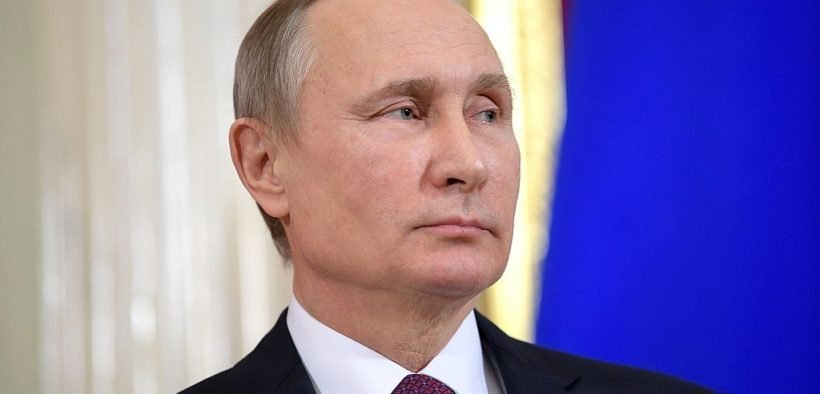Putin Proposes Constitutional Changes as Government Resigns

“There is no secret that Putin is the de facto dictator in Moscow and there is no expectation that the status quo should change when his term concludes in 2024. His annual state-of-the-nation speech Wednesday made clear that he has other strategies for maintaining his stranglehold on Russian politics.”
Russian Prime Minister Dmitry Medvedev announced his resignation Wednesday along with the entire Russian government, Tsvetana Paraskova reported for OilPrice. The move came after President Vladimir Putin made remarks during his annual state-of-the-nation speech that he would put forward constitutional amendments to restrict the power of the president and put more power in the legislature and State Council, which Putin currently heads.
Neutering the Office of the President
The shakeup was a shock for Russia and, more broadly, the world. The geopolitical ramifications are uncertain, but it is unlike Putin to make a change that does not have some benefit for him. Previously, Medvedev and Putin rotated positions to circumvent the constitutional limit of 2 six-year terms for the office of the president. Even as prime minister, it was widely-believed Putin remained the man in charge, thanks to a strong relationship with Medvedev.
Putin’s term expires in 2024, a date far enough away that Putin can orchestrate a successful constitutional reorganization of power and simultaneously stack the government with puppets he can control.
“It’s not clear what role he will play, what will his status be. The only thing which is clear is that he will keep his role as the No. 1 person,” said Aleksei Chesnakov, political analyst and former Kremlin aide, in a Wall Street Journal article by Thomas Grove and Georgi Kantchev.
One of the changes Putin proposed, which will be voted on by the Russian public, would remove the president’s power to confirm the premise minister and Kremlin cabinet. The State Council would also be formerly added to the constitution under the executive branch.
Short of rotating positions once again with Medvedev or altering the constitutional term limits, Putin must be creative in ways to maintain his grip on the Kremlin. Why exactly he has chosen not to pursue those avenues is unclear, but it could be an attempt to maintain a semblance of democracy.
Imitating an Example of Success
Grove and Kantchev cited Singapore as a historical example for Putin’s playbook. There, former leader Lee Kuan Yew governed as prime minister for 3 decades before accepting the position of Senior Minister. After 14 years, he became the official Minister Mentor. In this way, Lee slowly stepped down his involvement in Singapore politics.
Putin is potentially trying something similar. The State Council is an advisory group for the president who also serves as the chairman. Putin himself created the body in 2000.
“The very fact he’s started a discussion on the State Council is that he’s maybe trying to create another place where power resides, where he can step above the presidential post,” said Alexander Baunov of the Carnegie Moscow Centre for the BBC.
Following Medvedev’s resignation announcement, Putin immediately nominated a successor, Mikhail Mishustin, the head of Russia’s tax service. On the surface, the choice seemed odd considering Mishustin is relatively unknown, but that may play to Putin’s advantage. A less-versed prime minister would be easier to control.
The referendum for constitutional changes would also allow Putin to serve again as prime minister after 2024. To that end, the changes would give the Duma the power to select the prime minister as well as other high-level positions. If the Russian president decides to go that route, his path back to the premiership could be easier, assuming he maintains his hold on the Duma. Furthermore, the president would be forced to work with officials who are not necessarily of his own choosing, but rather Putin’s.
Controlling the Optics
In addition to creating options for Putin’s post-presidential role in the Kremlin, the resignation of Medvedev and his government, and the proposed constitutional changes, could be viewed as a concession to the general public. Economic concerns have caused both Putin and Medvedev’s approval numbers to fall, according to a New York Times report by Anton Troianovski.
Protests in 2011 and 2012 underscored a sentiment that has not evaporated, only grown, even if it has not inspired more demonstrations. After nearly a decade of public outcry and silent suffering combined, Putin can now blame the legislature for the economic shortcomings of ordinary Russians.
There is no secret that Putin is the de facto dictator in Moscow and there is no expectation that the status quo should change when his term concludes in 2024. His annual state-of-the-nation speech Wednesday made clear that he has other strategies for maintaining his stranglehold on Russian politics.
By empowering the State Council and Duma, Putin can avoid further protests that would typically accompany a power grab move such as extending his term limit. He can also control the optics and message, that he is giving more power to parliament and that the troubled times of Medvedev are over.








It’s reasonable.